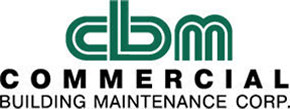As temperatures rise and summer takes hold, the importance of maintaining energy efficiency in buildings becomes even more critical. Not only does this help in reducing operational costs, but it also plays a significant role in promoting sustainability. Summer cleaning isn’t just about aesthetics; it’s a strategic move to enhance energy savings. Let’s dive into some essential tips that can help you achieve this goal.
Importance of Energy Efficiency in Buildings
Energy efficiency isn’t just a buzzword; it’s a crucial component of building maintenance. By optimizing energy use, you can significantly cut down on operational costs. Think about it—lower utility bills mean more funds to allocate elsewhere. Plus, reducing energy consumption lessens the environmental footprint, contributing to a greener planet. Efficient buildings also tend to attract eco-conscious tenants, boosting property value and occupancy rates.
Window and Door Maintenance
Windows and doors are major culprits in energy loss. Dust and grime can prevent seals from working correctly, leading to air leaks. During your summer cleaning, pay special attention to these areas. Clean the frames and check for any gaps or cracks that need sealing. Proper insulation is key—keeping the cool air in and the hot air out can dramatically reduce cooling costs.
Lighting Upgrades and Maintenance
Lighting is another area where energy efficiency can be vastly improved. Upgrading to energy-efficient lighting systems like LEDs can cut energy use significantly. But don’t stop there—clean your light fixtures and replace any old bulbs. Dusty fixtures can diminish the amount of light emitted, meaning you might use more lights than necessary to achieve the same level of brightness. Keeping them clean ensures maximum efficiency.
Efficient Water Management
Summer cleaning isn’t just about saving electricity—water efficiency is equally important. Inspect and maintain your irrigation systems to prevent water waste. Ensure that there are no leaks in the plumbing and that water is being used efficiently. Implementing water-saving practices, such as using drought-resistant plants for landscaping, can significantly reduce water consumption.
Cleaning Green: Eco-Friendly Practices
Using eco-friendly cleaning products and practices not only helps the environment but can also contribute to energy efficiency. Harsh chemicals can wear down building materials faster, leading to more frequent replacements and repairs. Eco-friendly products are gentler and often more effective in the long run. Plus, they improve indoor air quality, creating a healthier environment for occupants.
Monitoring and Adjusting Cleaning Schedules
Energy demands fluctuate with the seasons, and so should your cleaning schedules. Regular monitoring and adjustment of these schedules can ensure that cleaning practices are aligned with energy efficiency goals. For instance, focus more on exterior cleaning in the summer to reflect heat and maintain cooler building temperatures. Regular evaluations can help identify areas where energy savings can be further optimized.
Conclusion
Maximizing energy efficiency through summer cleaning isn’t just about making your building look good—it’s a smart strategy that pays off in the long run. From window and door maintenance to eco-friendly practices, every step you take towards maintaining your building efficiently counts. By prioritizing these practices, building managers and owners can ensure long-term sustainability, significant cost savings, and a positive environmental impact. So, as you plan your next summer cleaning, remember these tips and make energy efficiency a top priority. Your building—and your wallet—will thank you.

